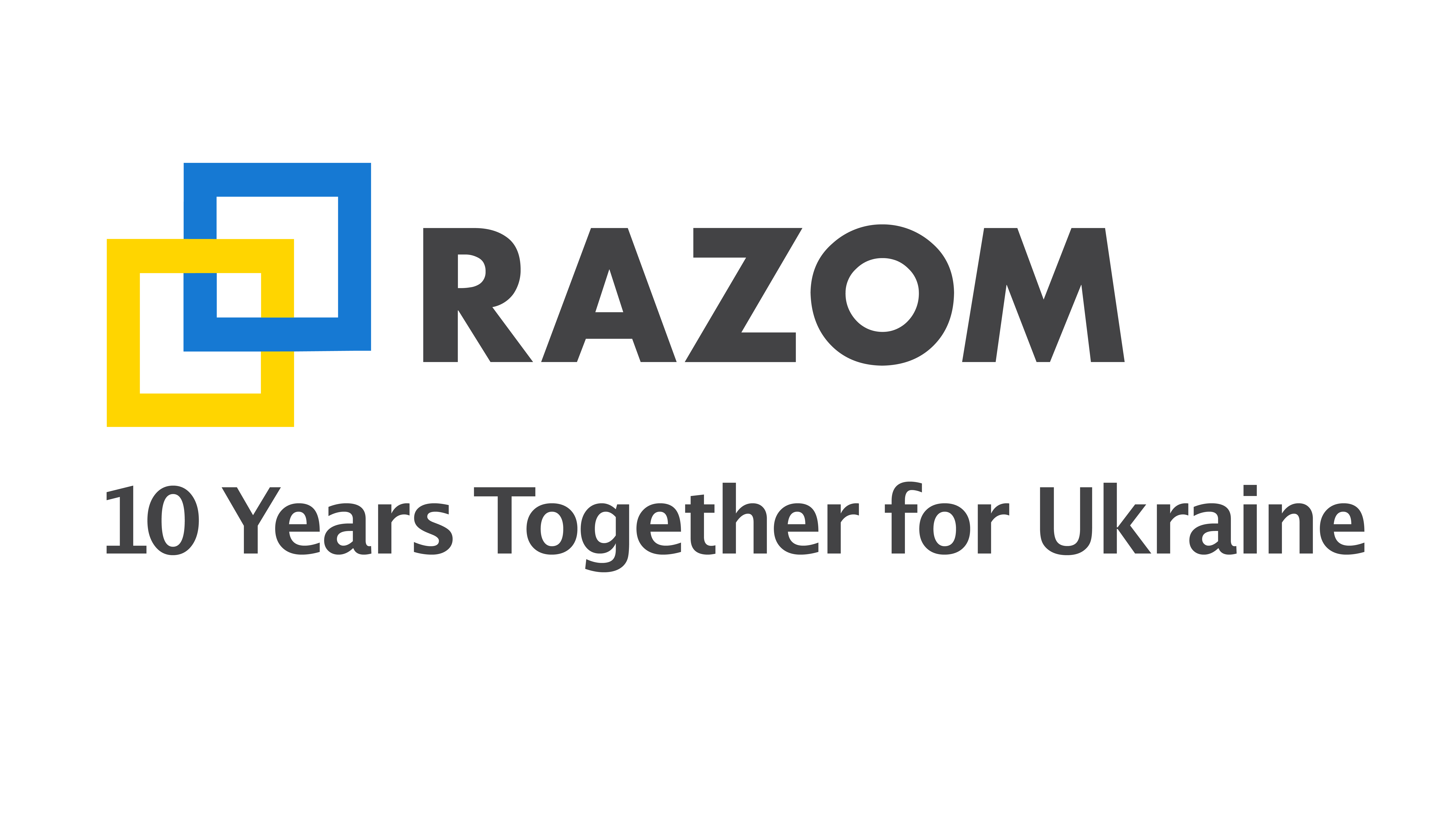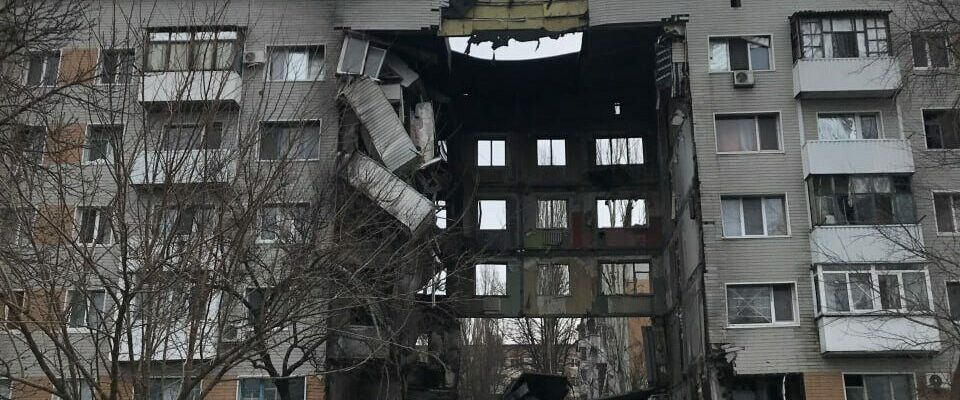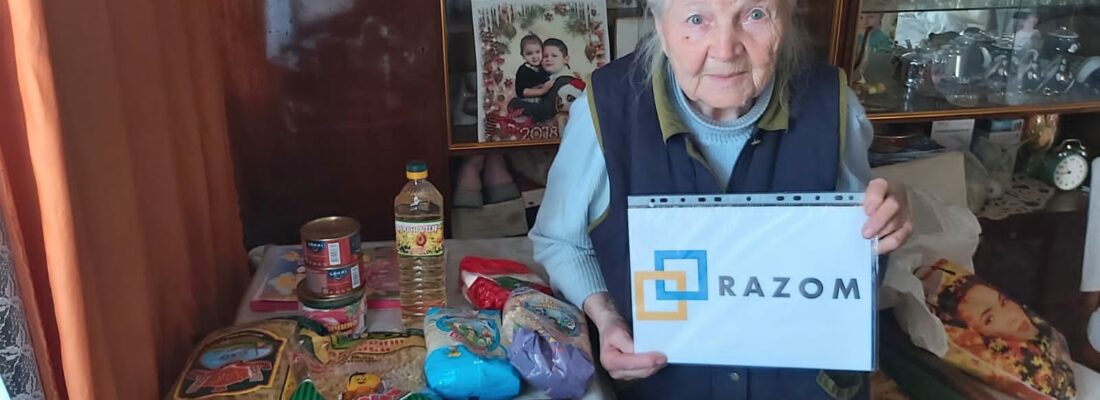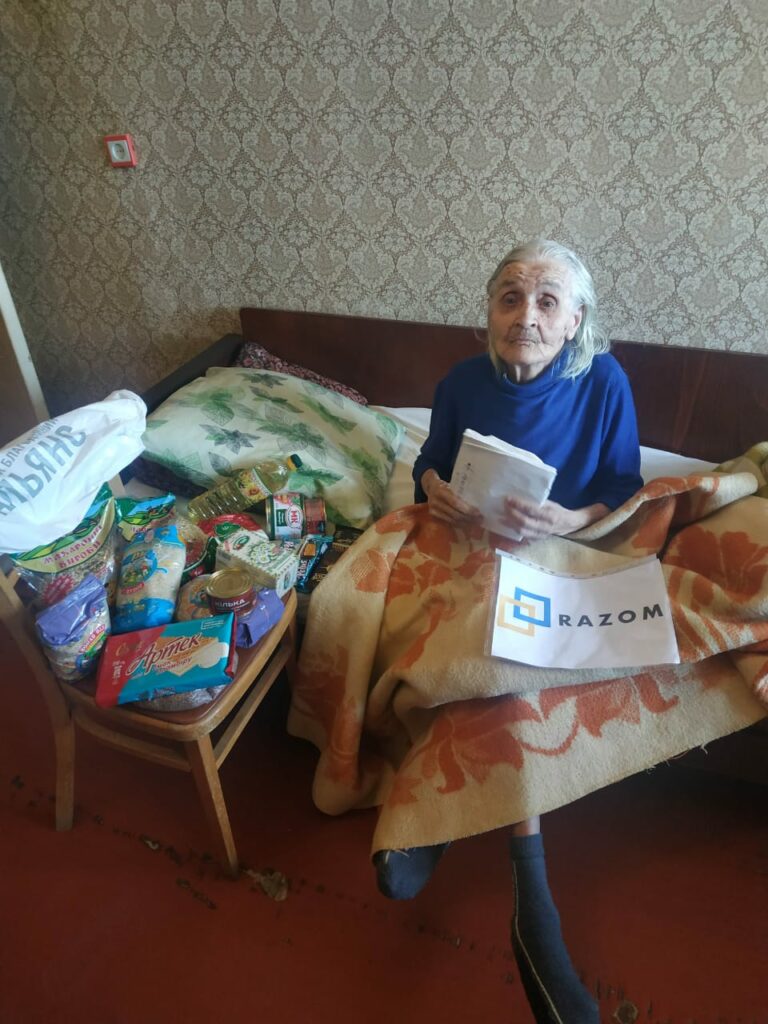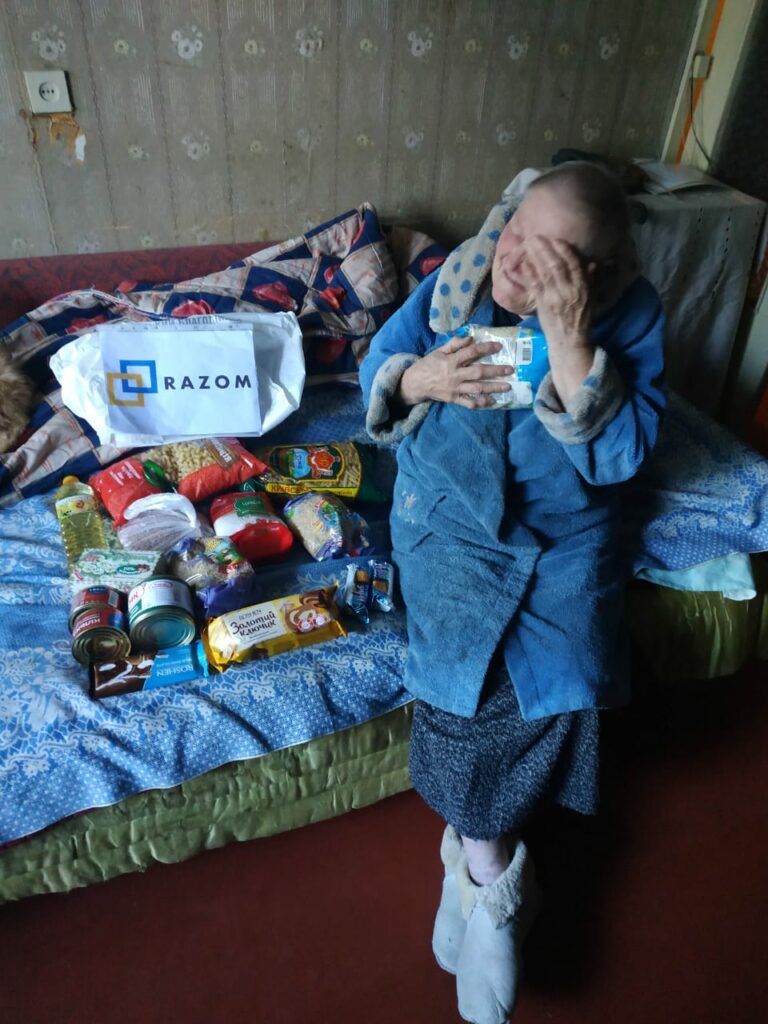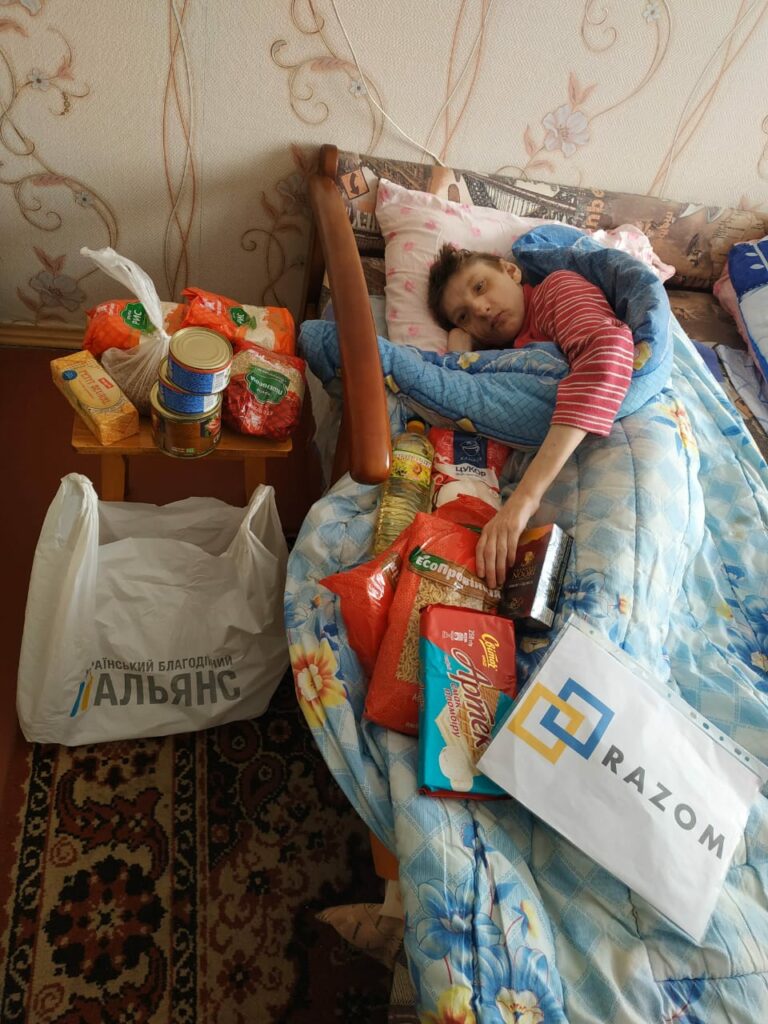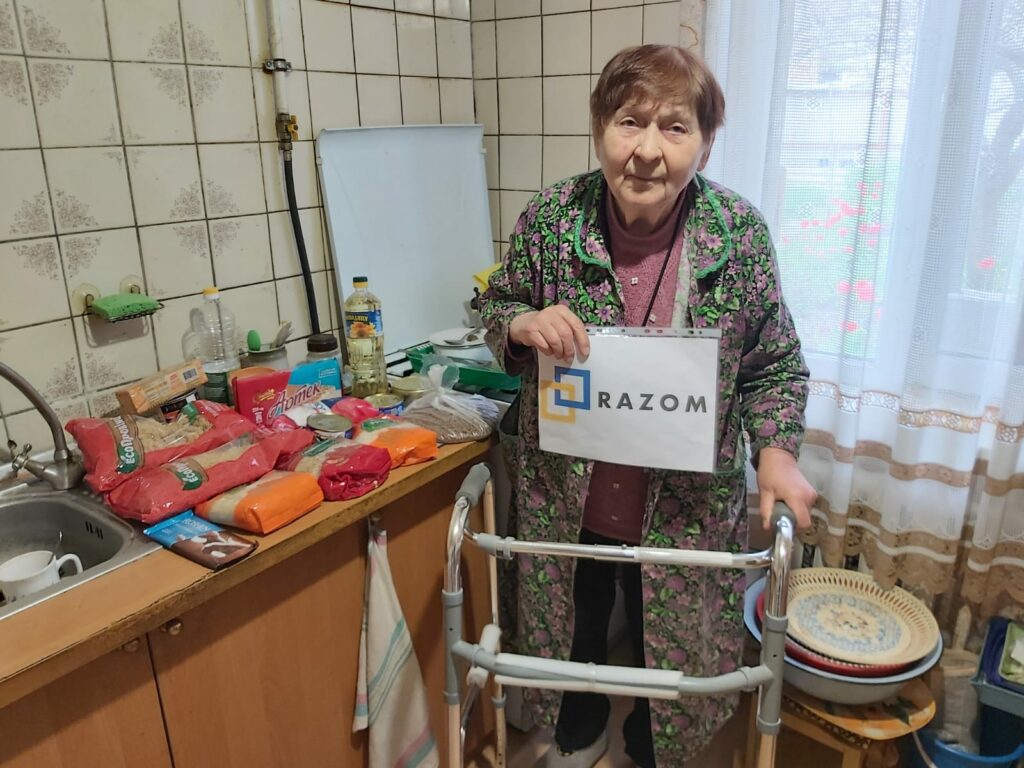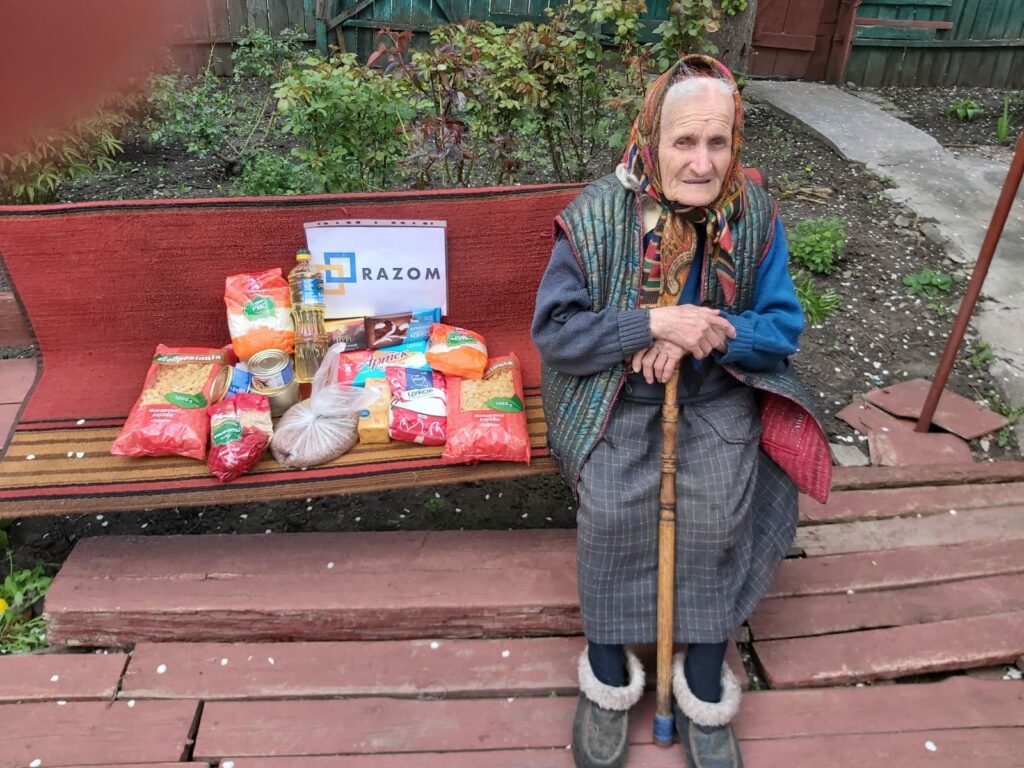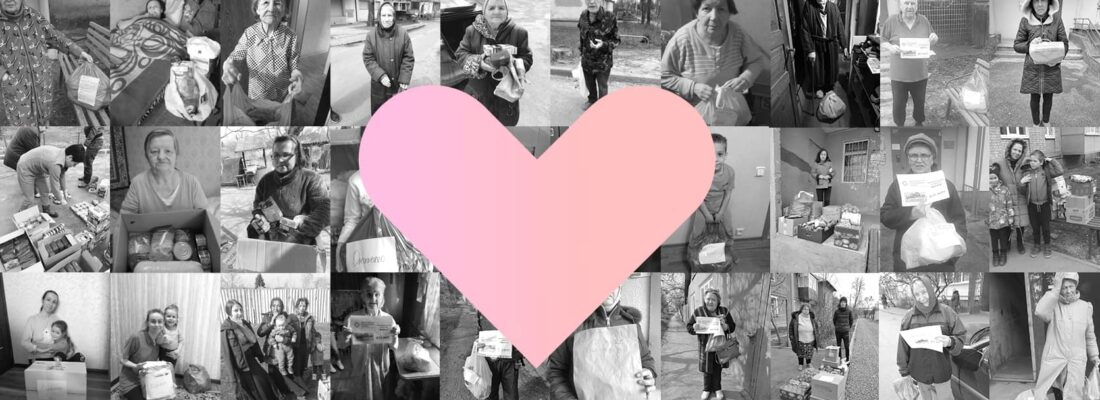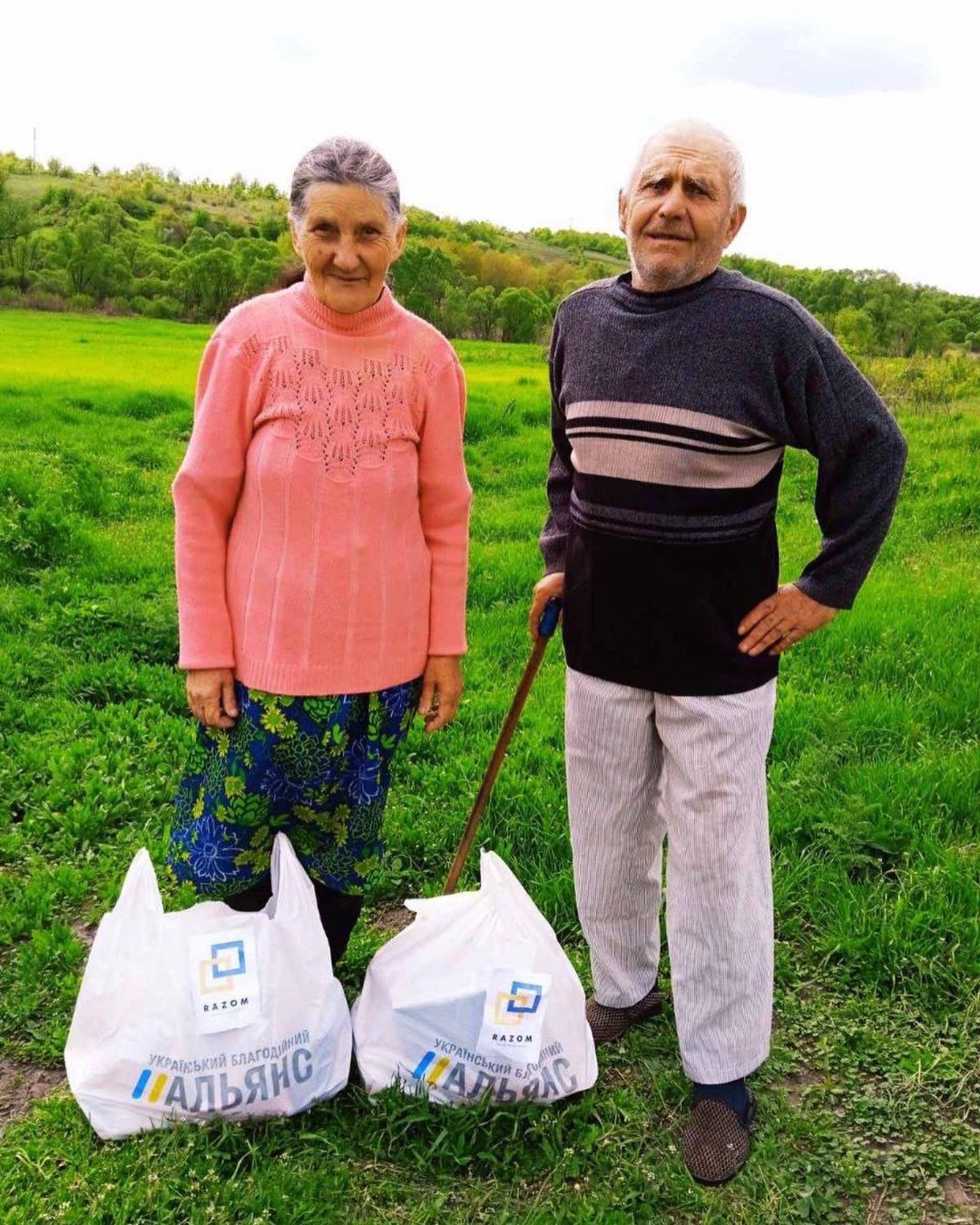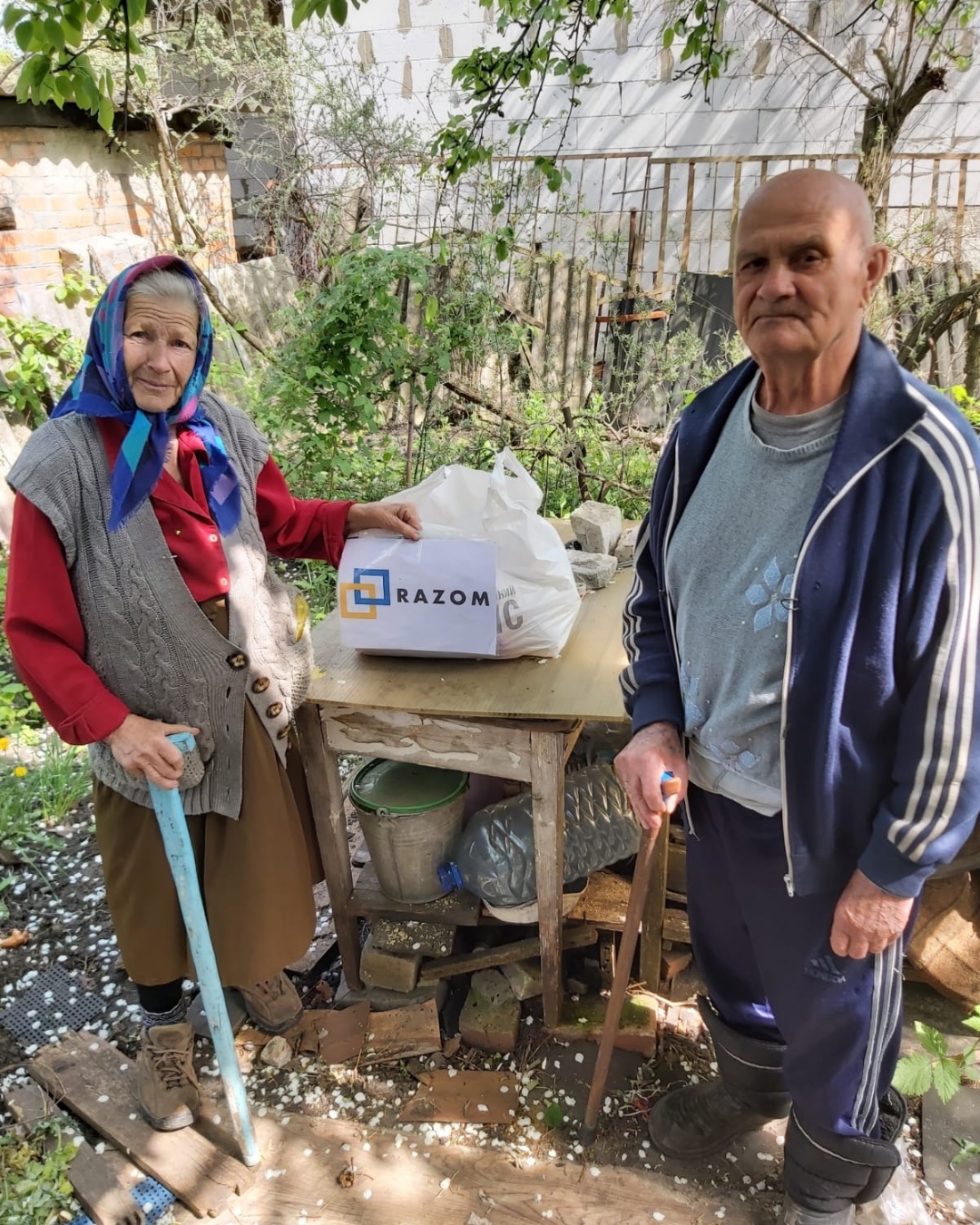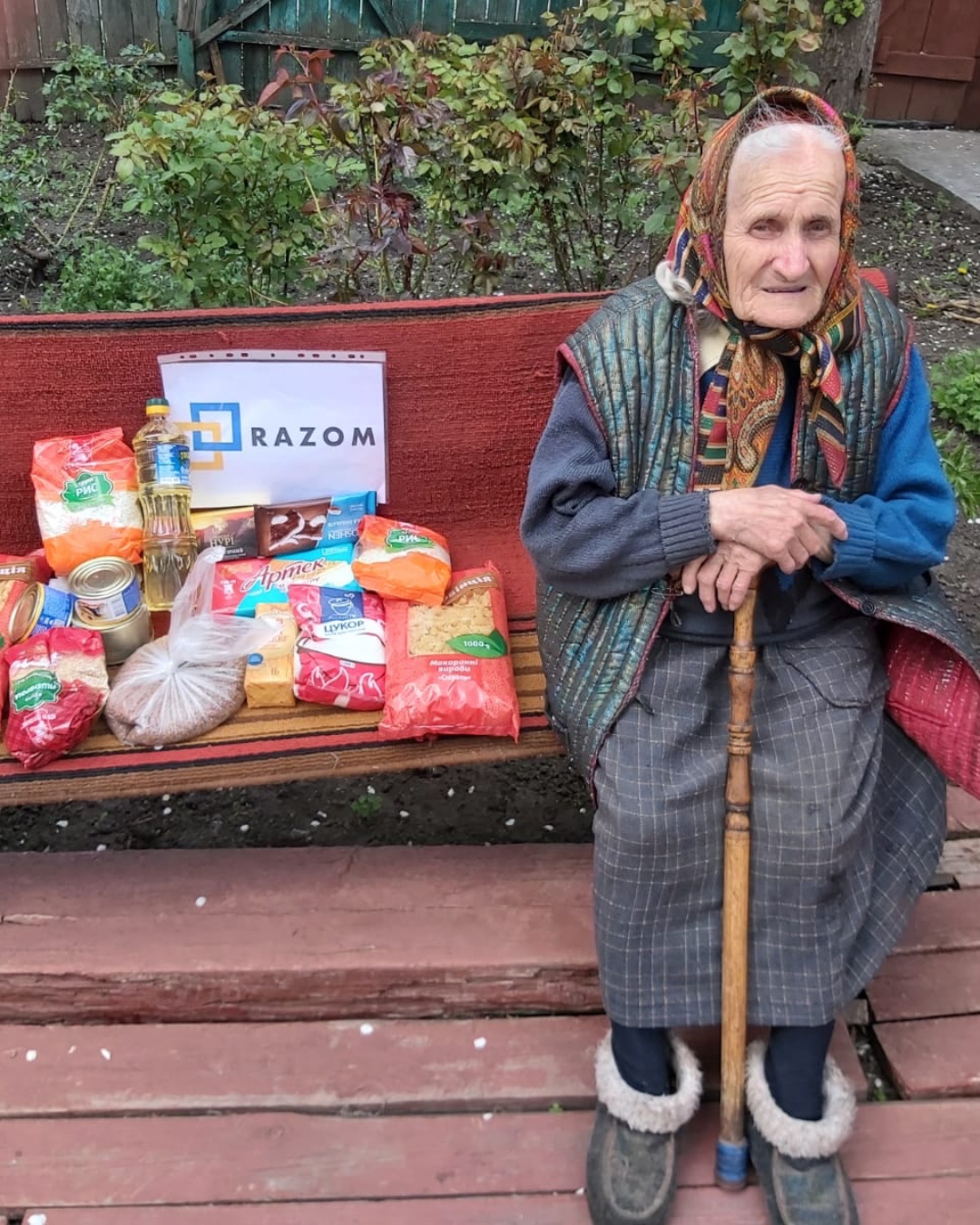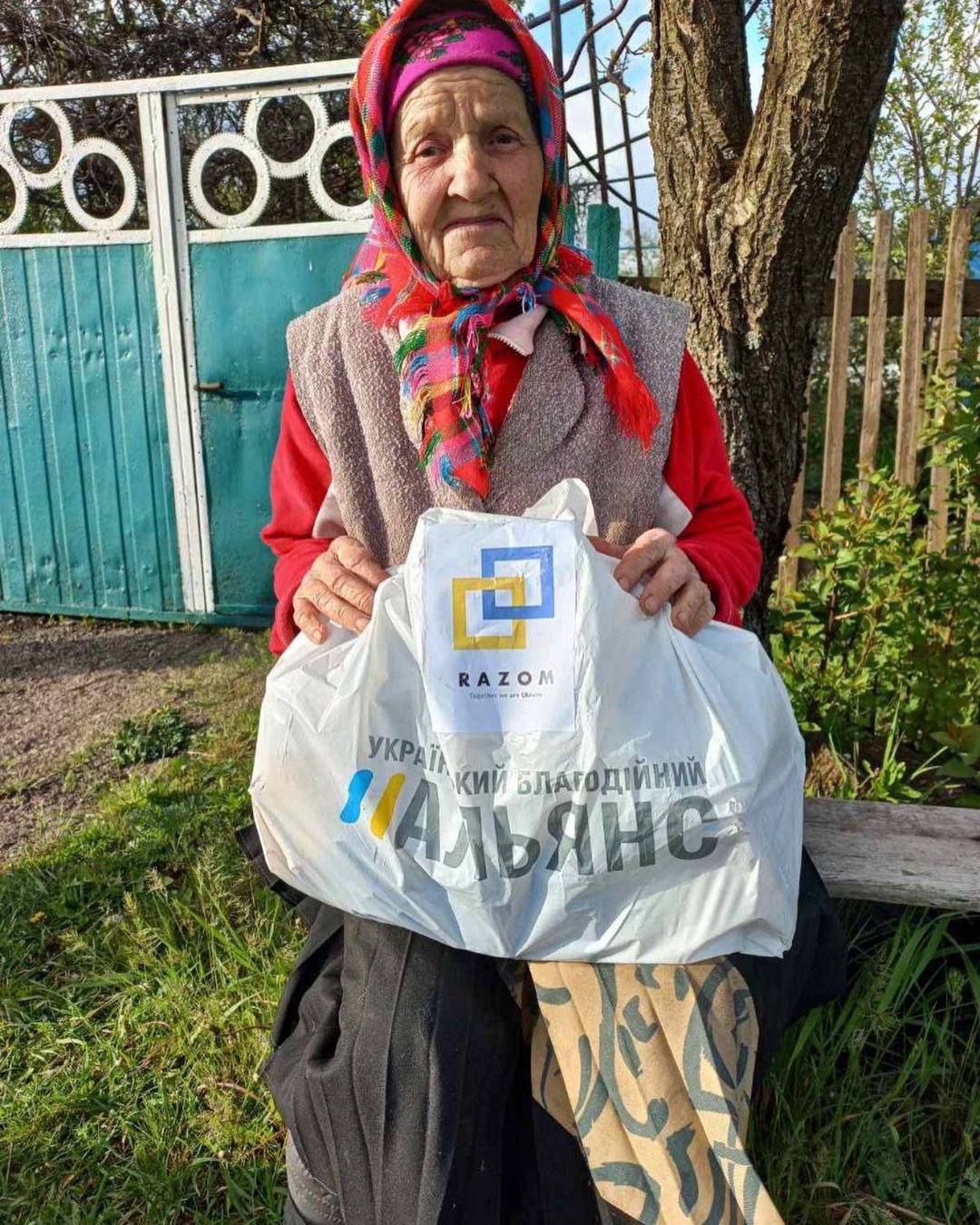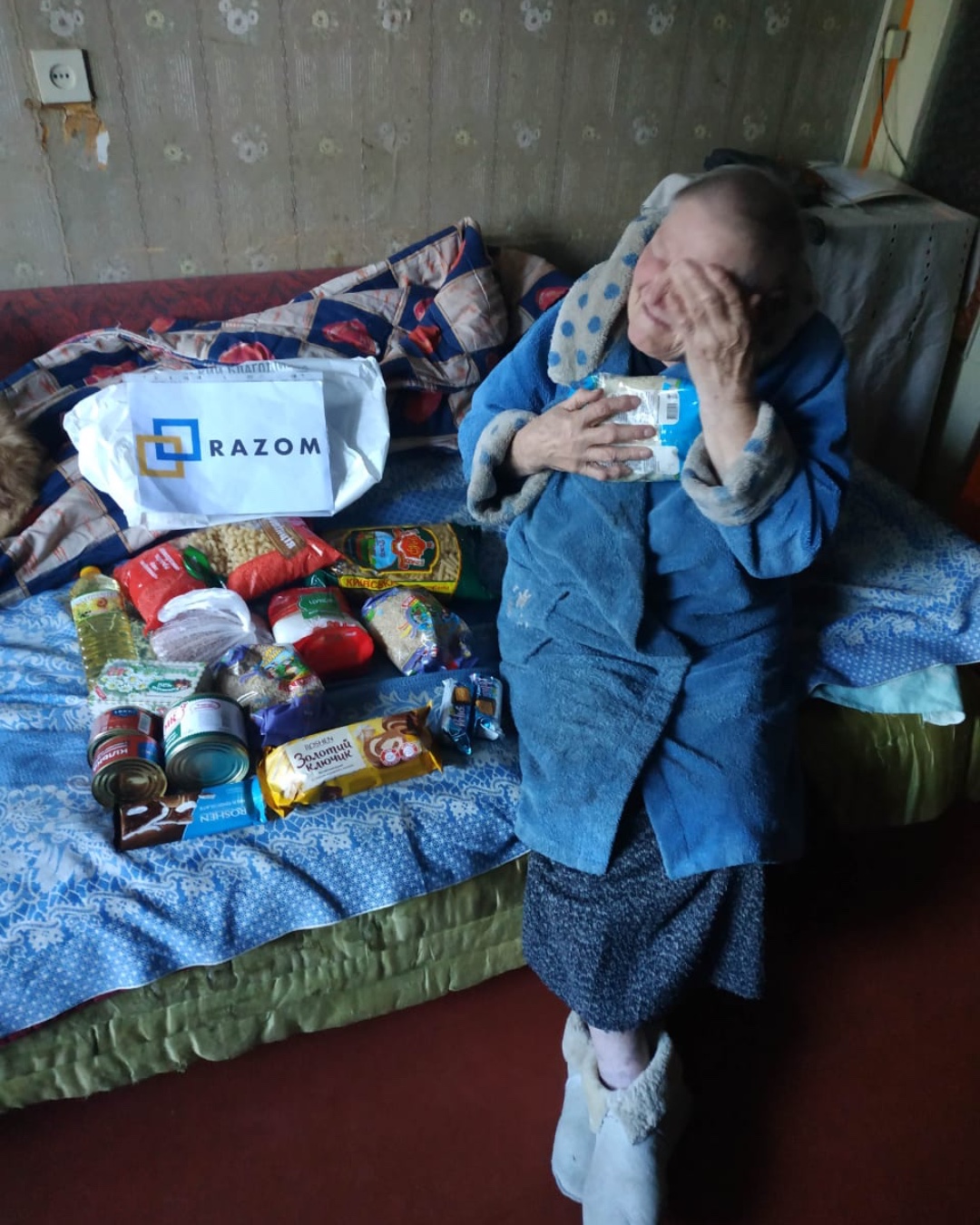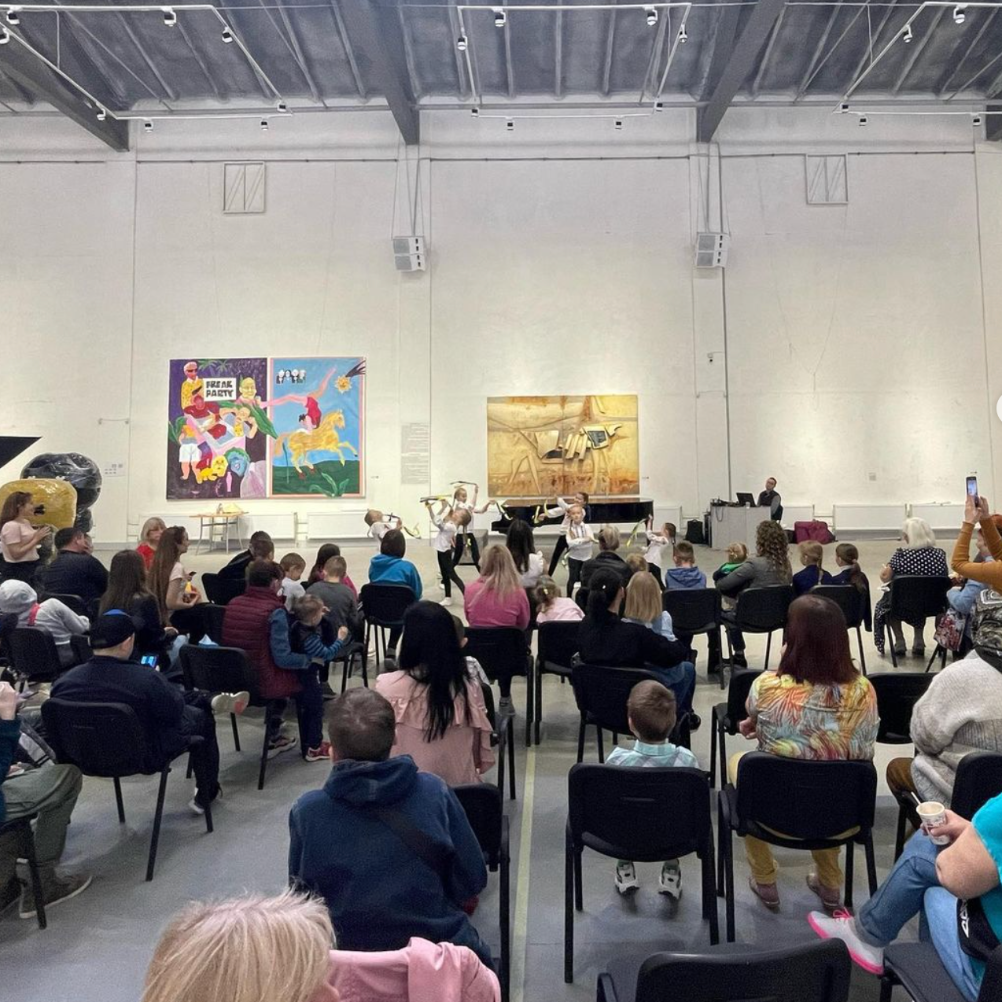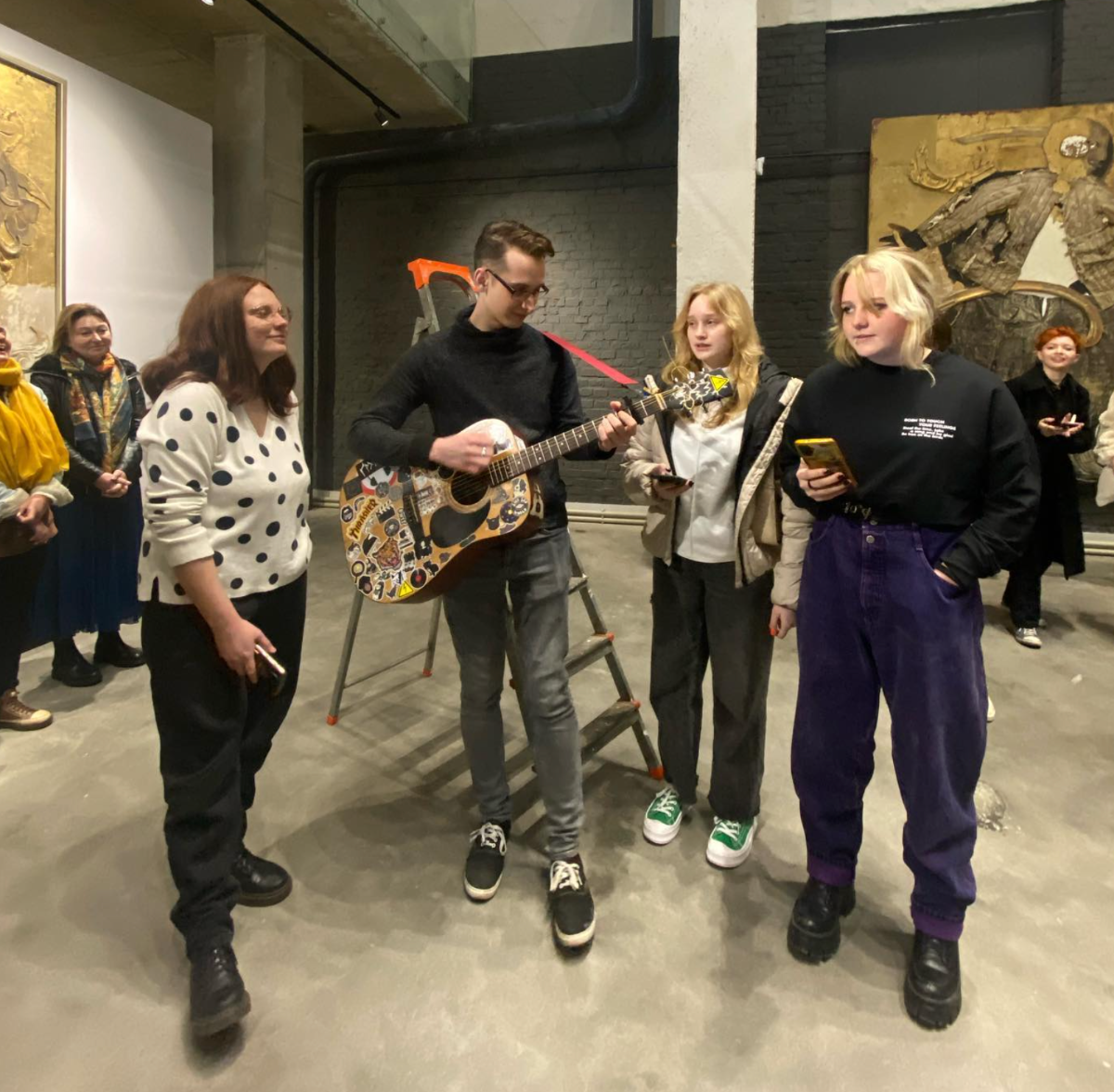“This is our native land. We are not going anywhere. We are Donbas.”
“I have a lot of elderly relatives here. I can’t leave them.”
“Everywhere is dangerous. The entire country is under fire. At least here we’re home.”
These are just a few quotes from people who, despite vicious daily attacks, remain in Bakhmut. russian airstrikes and shelling destroyed the infrastructure, leaving them with no water, electricity, or heat. Out of 72 000 residents, only about 6000 stayed, including 200 children. They are encouraged to leave by both the authorities and the volunteers, who offer regular evacuations. However, due to various personal circumstances, people stay. They are not many, but they are resilient.

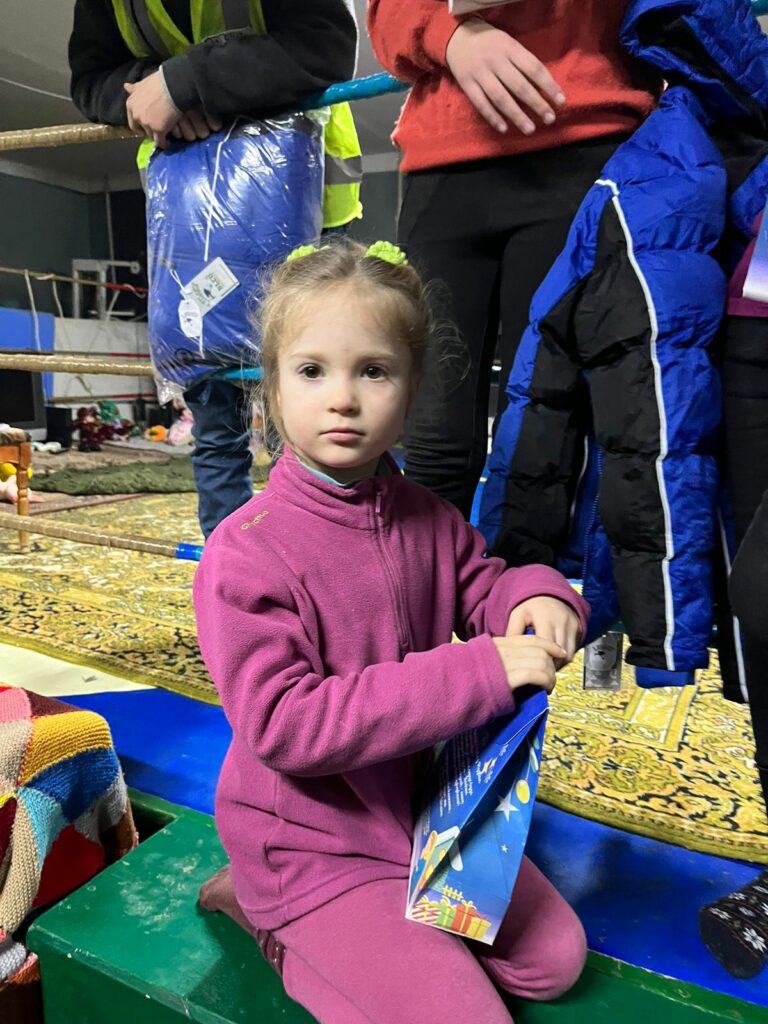
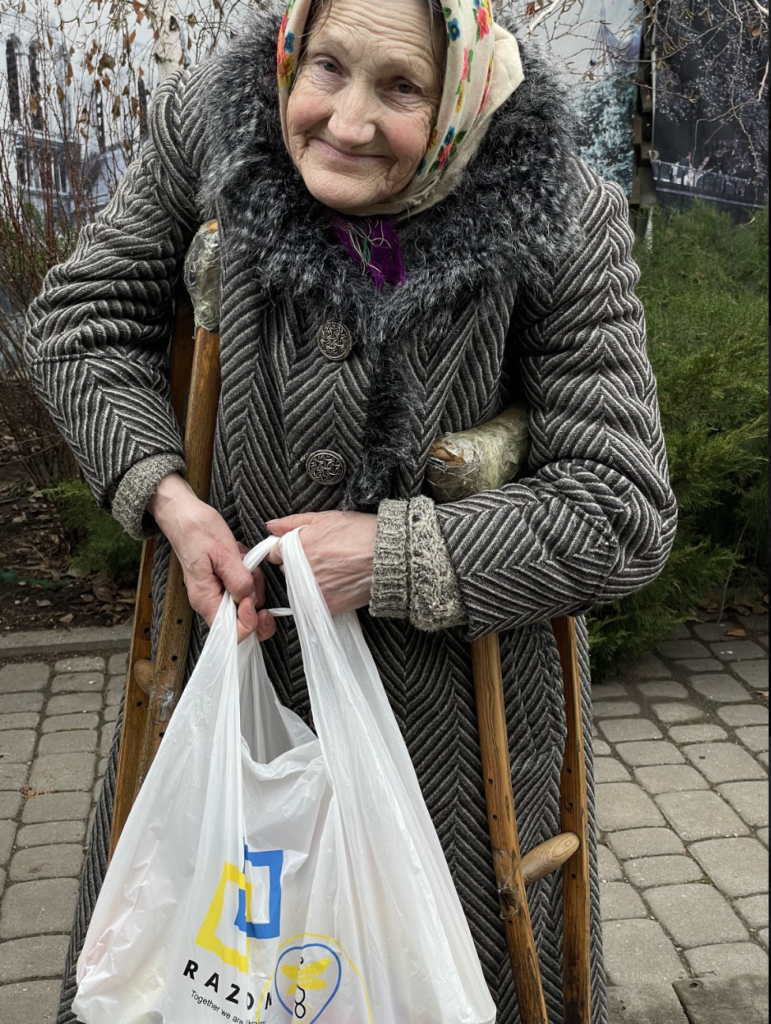
The horrid reality of the “russkiy mir” (“russian world”, “russian peace”) isn’t new to Bakhmut’s natives. In April 2014, pro-russian forces managed to capture parts of the city, but after a few months of fighting, ZSU (The Armed Forces of Ukraine) and The National Guard expelled them from the area. With the start of the full-scale invasion, Bakhmut Raion (district), yet again, turned into a war zone.

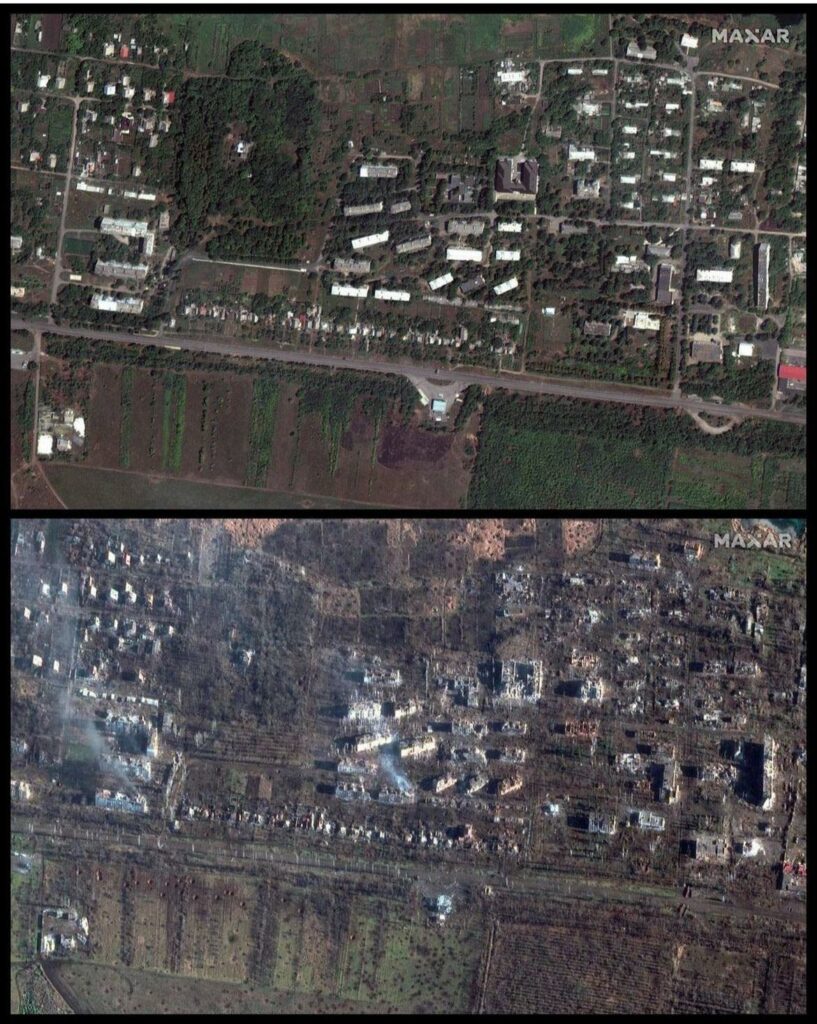
Winter escalation in the Battle of Bakhmut left its residents without food, water, medicine, communications, and other most basic necessities. The besieged city is struggling to stay standing, and the continuous bombardment of the area hinders humanitarian aid. And yet, in spite of all the obstacles, Ukrainian volunteers move mountains.

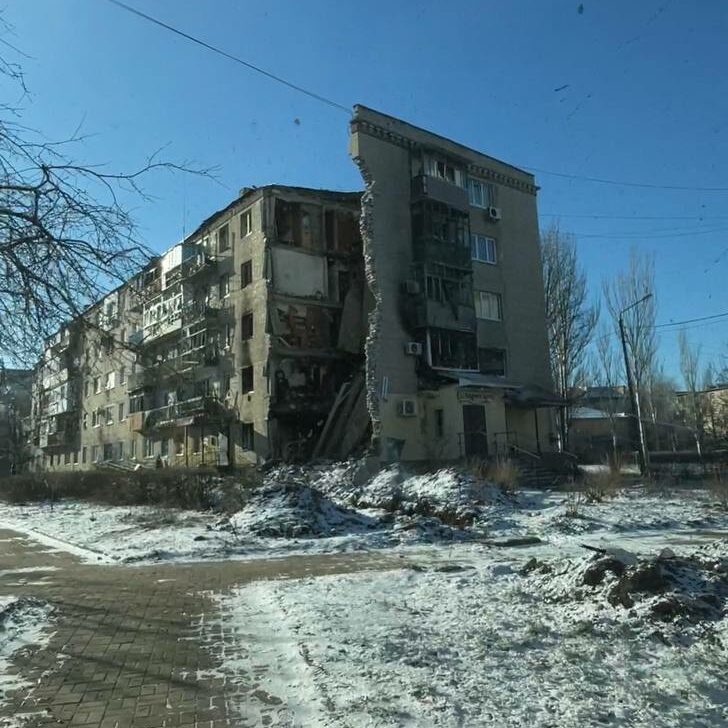
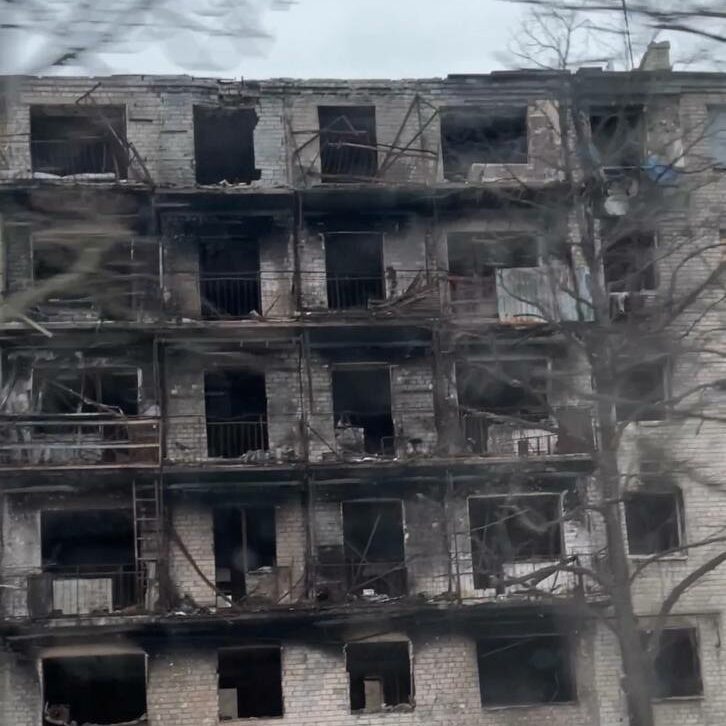
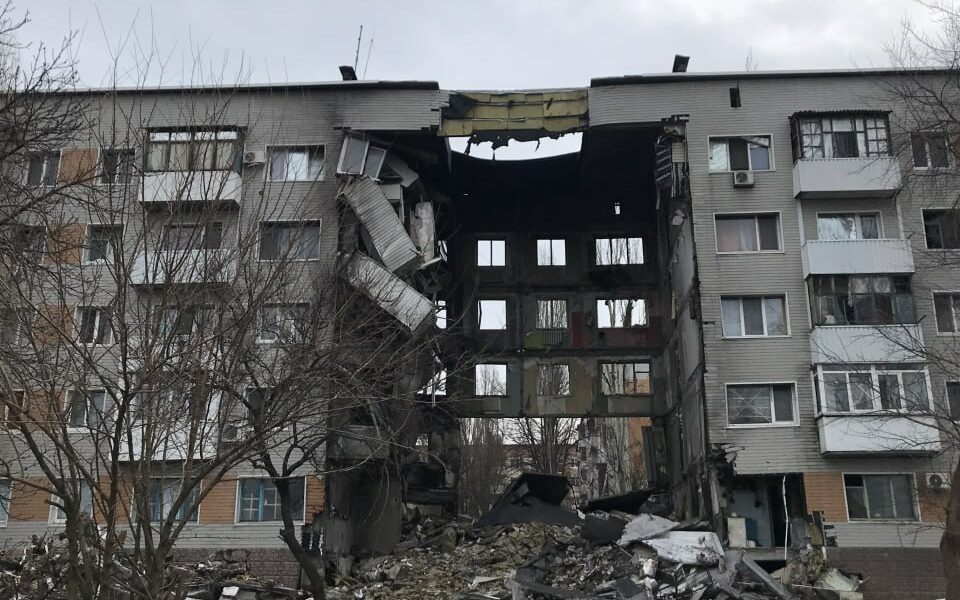
Razom saw the exigency of the situation and, with help from the Lackland Family Foundation and UJA-Federation of New York, provided monetary grants to the Ukrainian NGOs working in Bakhmut. Being on the ground and listening to people’s needs, they are able to provide quick and targeted assistance.
“We have to keep working. We must let them [Bakhmut residents] know they are not alone. Their compatriots did not abandon them. Ukraine did not abandon them.”
– Says Oleksii Kurtsev, a co-founder of Ukrainian Charity Alliance, an NGO helping underprivileged and vulnerable groups since 2018. Razom partnered with UCA in May 2022 and provided them with multiple grants for humanitarian aid.
The latest grant of $30,000 is directed to help the population of the frontline territories. Because of the developed logistics and systematic approach, the UCA team quickly and strategically delivers aid to the newly liberated territories and hot zones. Each humanitarian convoy makes a few stops in multiple cities and evacuates people to safety on the way back. To Bakhmut, they delivered 600 shelf-stable grocery sets. One set will feed one person for at least a month.
Another amazing NGO helping Bakhmut residents is called “Svitliachky Blago” (“Fireflies for Hope”). Siranush Arutiunian-Bozoian started this initiative in 2015. Over the years, she organized countless events to raise funds to purchase medical equipment for public hospitals and clinics and aid social institutions like orphanages and IDP centers in the Donetsk region. Heartbreakingly, Siranush was ill and has recently passed, but her life and work touched and inspired many people. The team of “Fireflies” that she brought together continues spreading light and kindness.
In response to russian aggression and the growing humanitarian crisis, “Fireflies” formed a permanent hub for receiving and distributing humanitarian aid and organized delivery and supply of first-aid care, medication for post-chemo treatments, cancer treatments, and epileptic patients. So far, Razom Grants has provided “Fireflies” with three grants totaling $30,000. The most recent grant of $8,000 was allocated specifically for Bakhmut Raion and already allowed for forming and distribution of almost 1000 grocery sets.

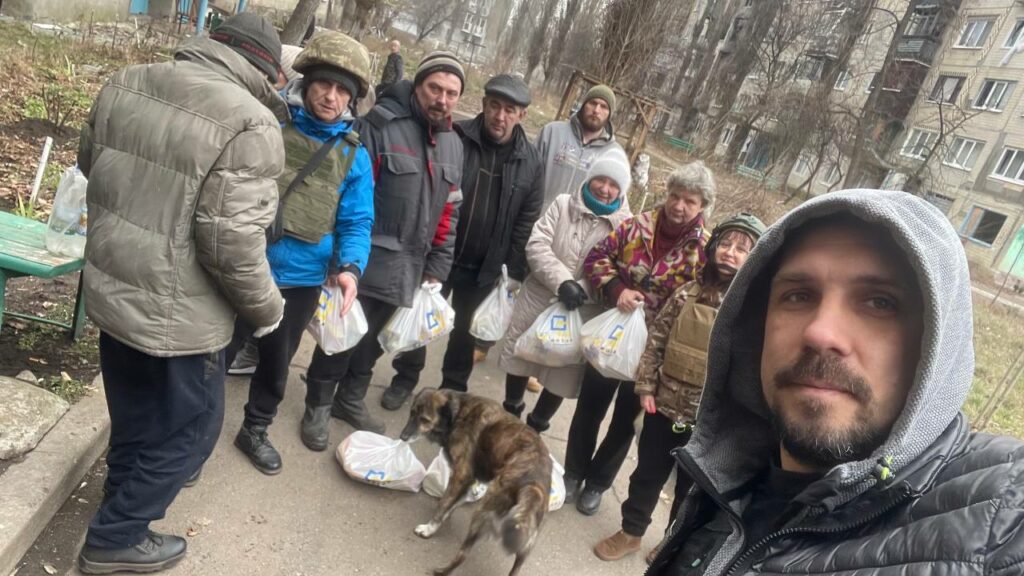

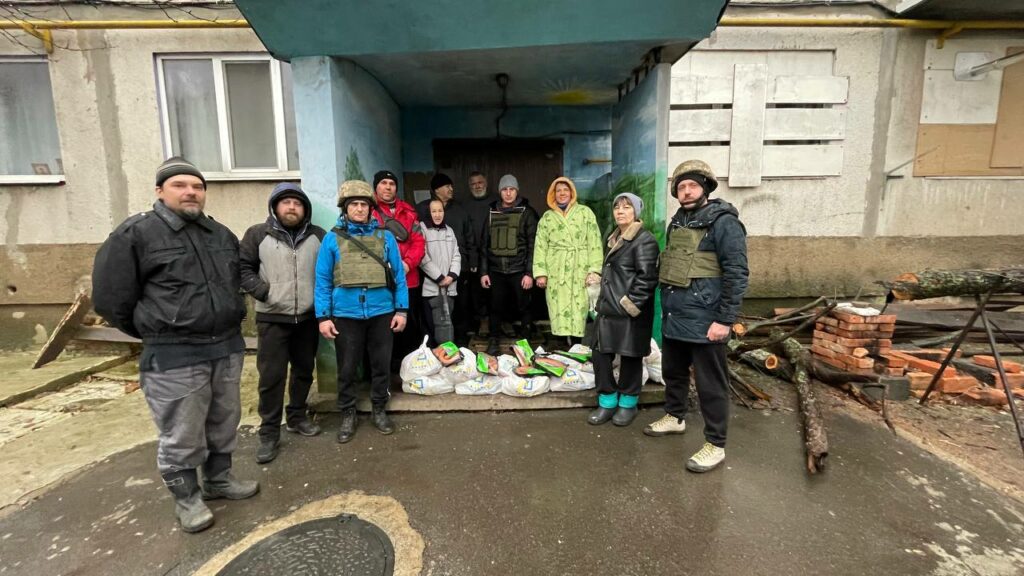
A grant of $10,000 was awarded to “Angels of Salvation,” a charity organization founded by citizens from Donetsk and Luhansk regions who’ve known war since 2014. Just a few days after the invasion, they started evacuating people and, in April 2022, formed a team of 60 co-owners, set up two warehouses, and built a fleet of 25 vehicles. Svitlana, “AoS” project manager, says there are no weekends at war. Every day volunteers risk their lives to aid people in need.
With the help of Razom’s grant, “Angels of Salvation” purchased fuel, delivered 457 hygienic kits serving approximately 800 Bakhmut’s residents, and evacuated 17 people on the way back. Some people were sick, and volunteers transported them to the hospital; others went to the safer areas, each of them with just one small bag. Reuters has recently reported a story of a six-year-old girl rescued from Bakhmut. In one of the videos, you can see Razom care packages with hygienic sets delivered by volunteers.
“Adrenalin” – a Kharkiv sports club turned volunteer organization – had also recently made a trip to Bakhmut. Volunteers delivered 800 grocery kits and 300 blankets to four Points of Invincibility – the aid stations equipped with wood-burning stoves, generators, heaters, Starlinks, and kids’ play areas – and brought trench candles, canned food, and candy to the soldiers. This trip was just one of the many made possible by the $30,000 grant from Razom.
Ruslan Bayramov, the president of “Adrenalin” and Kharkiv’s resident, seems unfazed by the situation in Bakhmut. He’s used to the reality of war:
“We went there on January 13 and faced no difficulties that day. Maybe we’re used to it now… You can hear gunfire and explosions around the clock. An enemy quadcopter was hovering above us.”

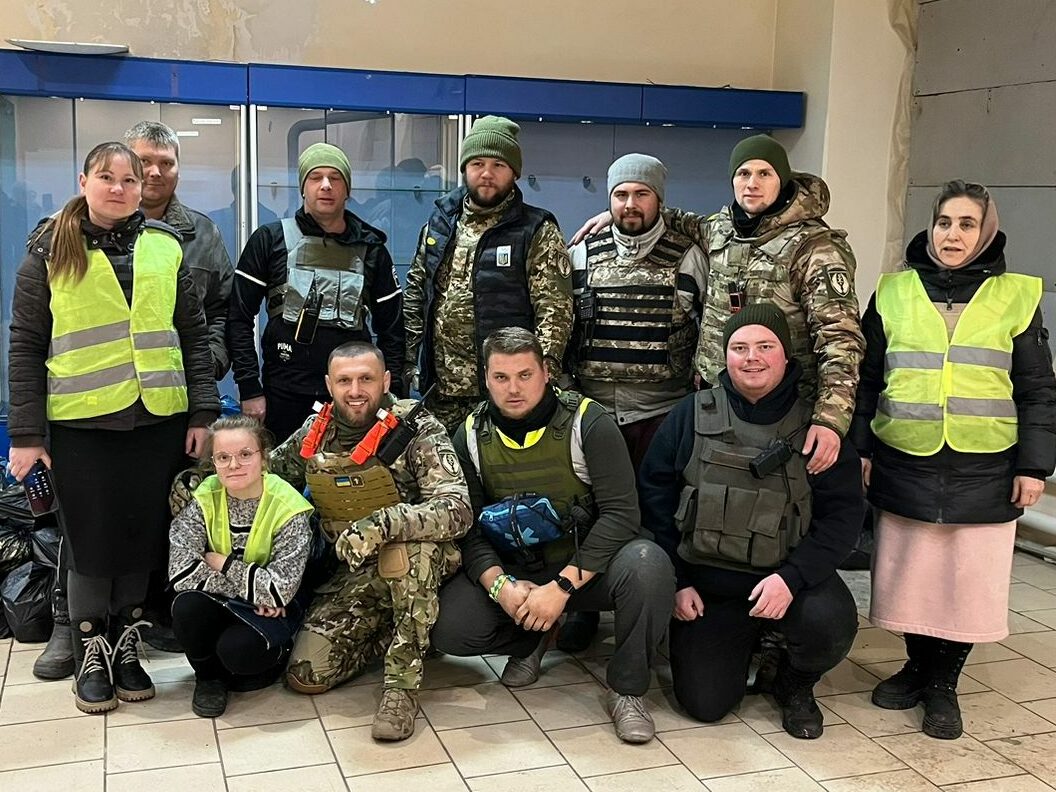

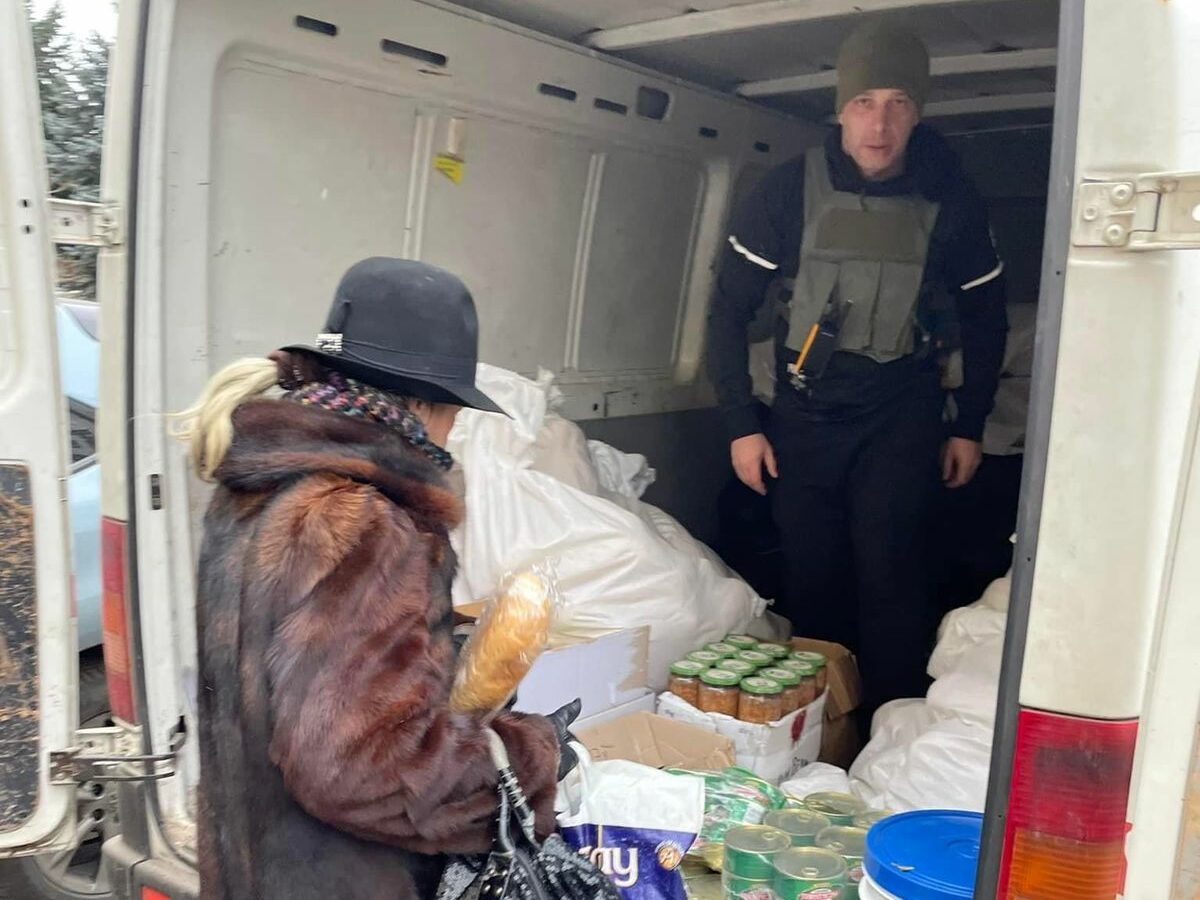
Razom started aiding NGOs working in Bakhmut in April 2022. “Bakhmut Ukrainian” has been active since 2014 when Bakhmut faced the first signs of “russkiy mir”: public disturbances, illegal armed groups, and refugees. Razom awarded them with a $25,000 grant that has helped thousands of people in the Donbas region during Spring-Summer 2022. BU volunteers provided people with food, medicine, hygienic products, candles, blankets, sleeping bags, thermos vacuum flasks, generators, and more.

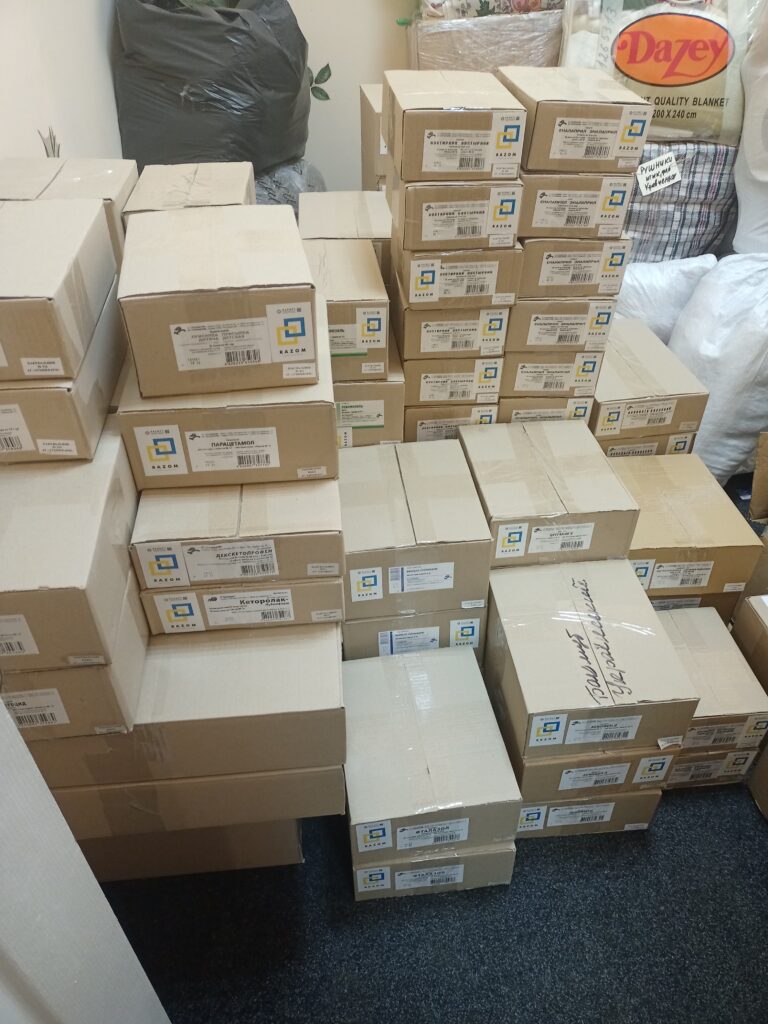
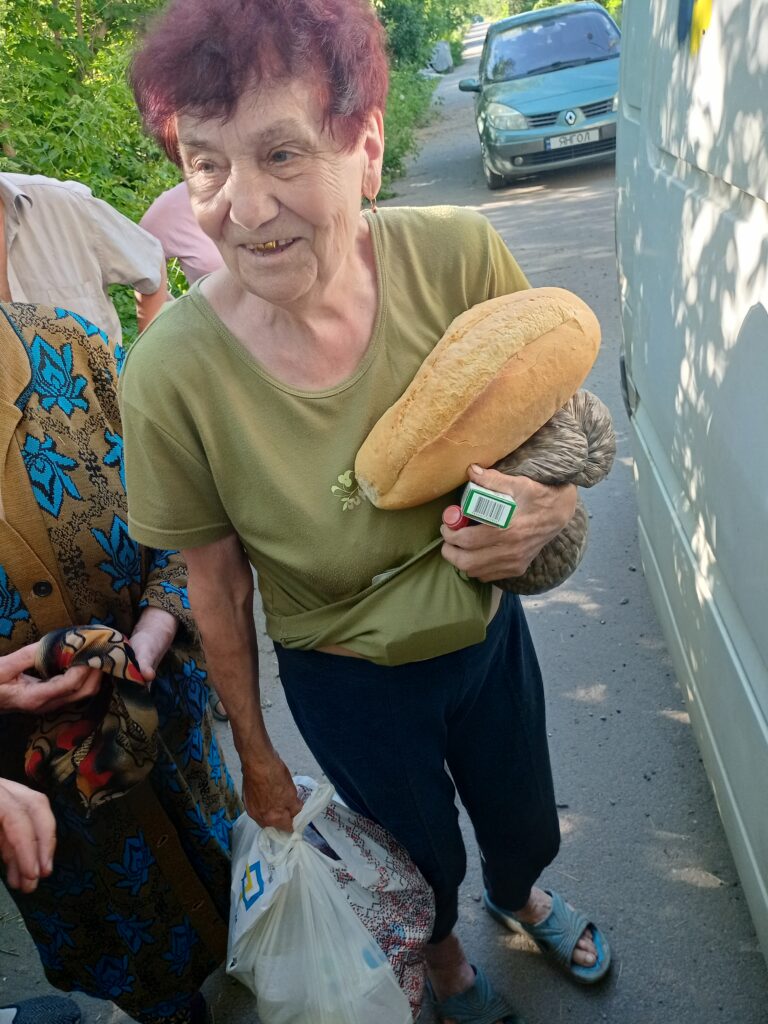
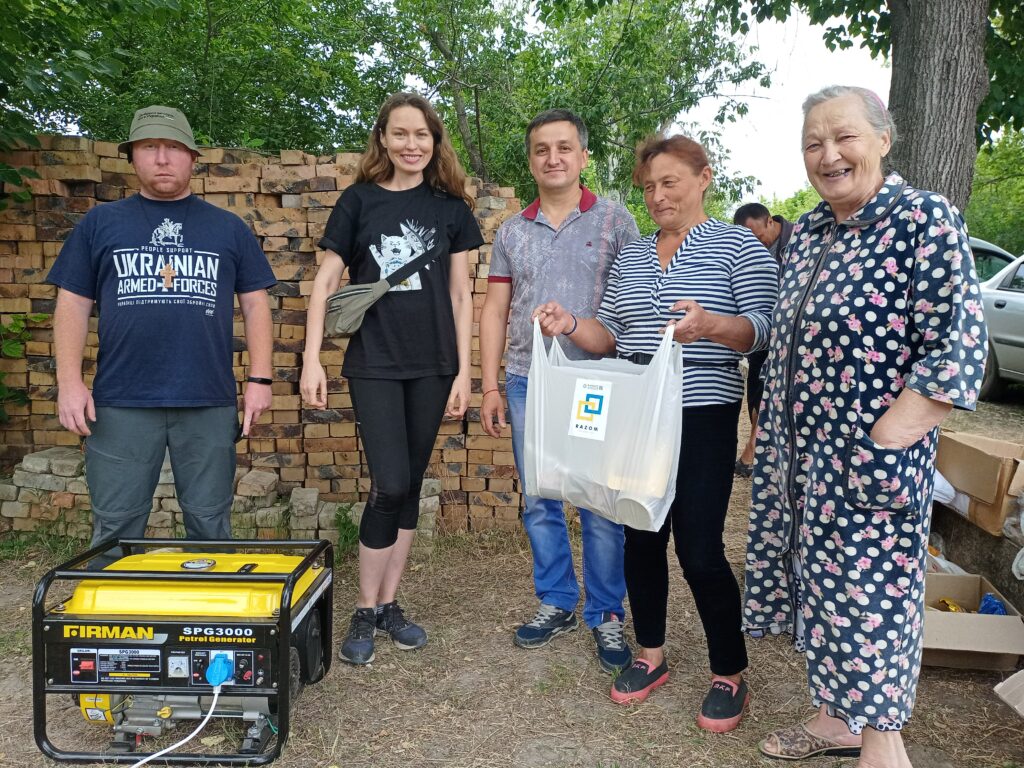
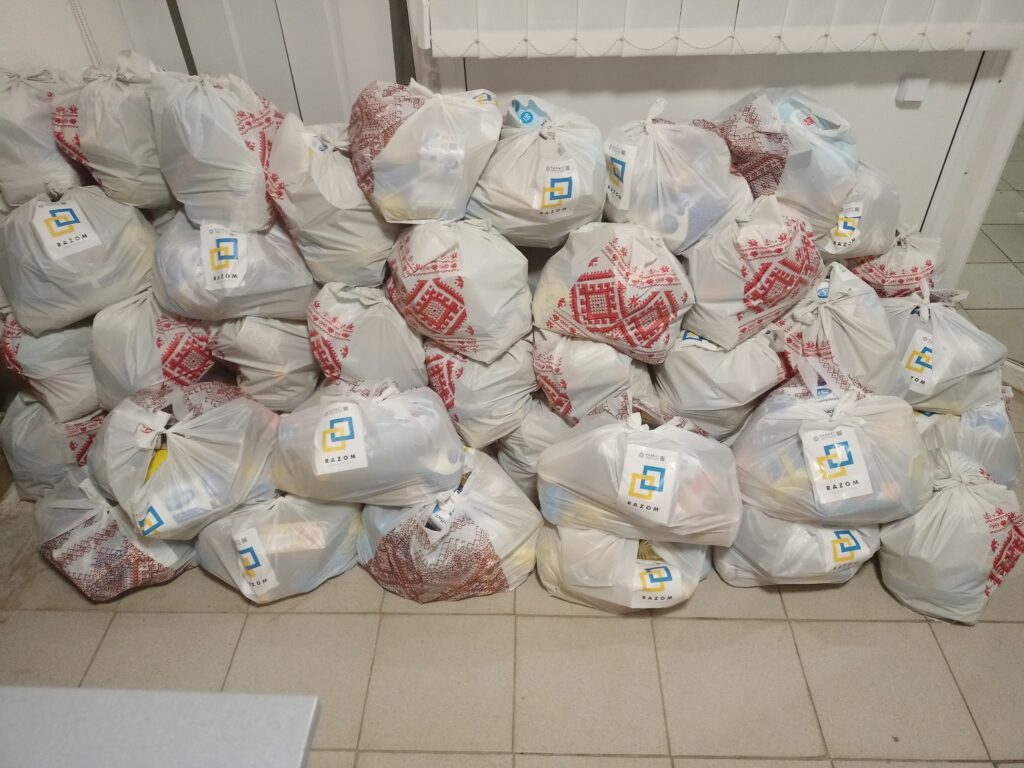
Multiple volunteers confirm – many organizations responded to the emergency, and Bakhmut is now pretty well supplied with food. However, the need for water is urgent because of the destroyed infrastructure. It gets to the point where people drink boiled water from Bakhmutka River. The residents also need flashlights, batteries, candles, and biomass briquettes (biofuel), among other things.
Please, consider donating to Razom Grants to help us further aid volunteer organizations in Ukraine.
